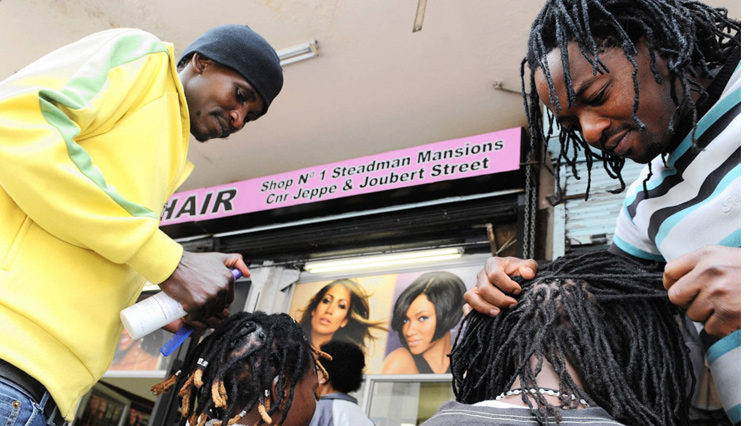Local and international hair brands are diversifying their product range in the wake of an increase in the number of consumers that are choosing natural hair. According to new research by market intelligence company Mintel, relaxer sales have dropped by almost 40% internationally.
In South Africa, the sales have dropped by 20%. Cosmetic and hair retailers, including hair salon owners, have noted a decrease in the use of relaxers as more and more black consumers – especially women – choose natural hair.
“I tried to relax my hair and it didn’t do it for me. I have dry scalp and so, natural is the way to go. I can wash it every day and also treating the weaves are also expensive,” says a woman with natural hair.
“For me, the biggest reason for my transition was to embrace my Africanness and that is to remain who I am, and if I had an option of a weave and my natural hair, it was a question of who am I. You can’t go into a swimming pool and do what you want to do. They are expensive, high maintenance and then restrictive. So, for me those are the reasons why I’d rather have my natural hair.”
Some local brands like Ladine and Jabu Stone have jumped in on the new boom.
Mduduzi Shongwe, head of education and Ethnic hair at Ladine, says they have seen a significant change in the hair relaxing market. He says two out of 10 people now leave their hair natural instead of relaxing it.
“But people are still relaxing their hair and we have also realised that there is growth in terms of people looking after their hair naturally. Whether they want to plait their hair, out on weaves, wigs and all of that, but the hair remains natural. But there is a drop. But it hasn’t affected that much. It’s at a low level at the moment. When it comes to the Afro people maintaining their original natural hair, we could see that there is a rise in terms of that market.”
Lydia Mutero, owner of Rosebank-based Urembo Concepts hair salon, has noticed a decrease in customers who want to relax their hair. Mutero says wigs have become extremely popular and fashionable. This has also contributed to the decrease in the use of chemical products.
“They have all gone natural because it’s a choice and also we have our own products that can all help us with our own natural hair and it doesn’t have to be a relaxer anymore. Companies that do relaxers are complaining because we don’t order anymore because we have better conditioners and treatment’s that are for our own hair. There are lots of things to do with natural hair like never before.”
Jabu Stone is a self- made entrepreneur and owner of Jabu Stone salon and natural hair products. He says, “When I started few people preferred to have your natural hair, your afros. They would complain. How do you maintain that? That is when I introduced the dreadlock market. Now, the people with relaxers say they don’t want to wait. They want to immediately lock.”
Ladine says they have had to change their business model to accommodate the natural hair movement. They now have a range of products called natural therapy range to soften natural hair and various shampoos and leave-in conditioner to help maintain the hair’s natural moisture.
According to Mintel, black consumer expenditure on shampoo increased by 13% between 2015 and 2017, and now claims an estimated 19% share of the market. The trend is set to continue in 2019, with shampoo and hair conditioner sales among black consumers expected to reach almost 500 million dollars, the largest percentage growth seen in the category in the last six years.
Jabu Stone believes the natural hair movement will continue to be trendy in the next few years. He says Africa has changed a lot and many Africans are finally embracing their natural heritage and culture.
“Twenty six years ago, I introduced the Afrocentric beauty standard. I refused to follow the Eurocentric beauty standard. So today, I am so excited when people, our women realise that they have to be afrocentric becoming who they are. Yes, of course, I appreciate that.”



